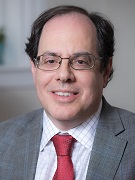 Alan S. Gerber (Director) is Sterling Professor of Political Science, director of the Institution for Social and Policy Studies, and professor of economics and of and statistics and data science at Yale University. He also has affiliations in the Yale School of Public Health and the Jackson School of Global Affairs. Previously he was appointed the Faculty of Arts and Sciences divisional director for the social sciences and became the inaugural FAS dean of social science, serving in this role from 2014 to 2021. His current research focuses on the application of experimental methods to the study of campaign communications, and he has designed and performed experimental evaluations of many political communications programs, both partisan and non-partisan in nature.
Alan S. Gerber (Director) is Sterling Professor of Political Science, director of the Institution for Social and Policy Studies, and professor of economics and of and statistics and data science at Yale University. He also has affiliations in the Yale School of Public Health and the Jackson School of Global Affairs. Previously he was appointed the Faculty of Arts and Sciences divisional director for the social sciences and became the inaugural FAS dean of social science, serving in this role from 2014 to 2021. His current research focuses on the application of experimental methods to the study of campaign communications, and he has designed and performed experimental evaluations of many political communications programs, both partisan and non-partisan in nature.
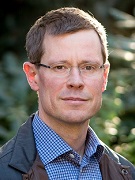 Gregory Huber is Department Chair and the Forst Family Professor of Political Science at Yale University. He is also a resident fellow of the Institution for Social and Policy Studies, the Director of the Center for the Study of American Politics, the Director of the ISPS Behavioral Research Lab, and an Associate Editor for the Quarterly Journal of Political Science. His research interests are in American Politics and Political Economy, including work on political institutions and behavior. He is motivated by a desire to understand how the interactions among the mass public and elites, political institutions, and policies explain important outcomes. He is centrally interested in how individuals think about the government, how these attitudes are shaped by government action and political campaigns, and how those beliefs in turn shape citizens’ political activities and government policy.
Gregory Huber is Department Chair and the Forst Family Professor of Political Science at Yale University. He is also a resident fellow of the Institution for Social and Policy Studies, the Director of the Center for the Study of American Politics, the Director of the ISPS Behavioral Research Lab, and an Associate Editor for the Quarterly Journal of Political Science. His research interests are in American Politics and Political Economy, including work on political institutions and behavior. He is motivated by a desire to understand how the interactions among the mass public and elites, political institutions, and policies explain important outcomes. He is centrally interested in how individuals think about the government, how these attitudes are shaped by government action and political campaigns, and how those beliefs in turn shape citizens’ political activities and government policy.
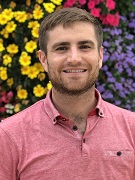 Joshua Kalla is Assistant Professor of Political Science at Yale University with a secondary appointment as Assistant Professor of Statistics and Data Science. His research interests are in American Politics with a focus on how, when, and why people change their minds about political issues. He is primarily interested in the political consequences of prejudice and ways to reduce it as well as the nature, extent, and implications of electoral persuasion in American politics. His research relies heavily on field methods, particularly randomized field experiments in partnership with both non-partisan and partisan real-world political groups.
Joshua Kalla is Assistant Professor of Political Science at Yale University with a secondary appointment as Assistant Professor of Statistics and Data Science. His research interests are in American Politics with a focus on how, when, and why people change their minds about political issues. He is primarily interested in the political consequences of prejudice and ways to reduce it as well as the nature, extent, and implications of electoral persuasion in American politics. His research relies heavily on field methods, particularly randomized field experiments in partnership with both non-partisan and partisan real-world political groups.
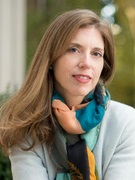 Hélène Landemore is Professor of Political Science with a specialization in political theory. Her research and teaching interests include democratic theory, political epistemology, theories of justice, the philosophy of social sciences (particularly economics), constitutional processes and theories, and workplace democracy. Hélène is the author of Hume (Presses Universitaires de France: 2004), a historical and philosophical investigation of David Hume’s theory of decision-making; Democratic Reason (Princeton University Press: 2013, Spitz prize 2015), an epistemic defense of democracy; Open Democracy (Princeton University Press 2020), a vision for a new kind, more open form of democracy based on non-electoral forms of representation, including representation based on random selection; and Debating Democracy (Oxford University Press 2021), with Jason Brennan, where she argues against her co-author that we need more rather than less democracy.
Hélène Landemore is Professor of Political Science with a specialization in political theory. Her research and teaching interests include democratic theory, political epistemology, theories of justice, the philosophy of social sciences (particularly economics), constitutional processes and theories, and workplace democracy. Hélène is the author of Hume (Presses Universitaires de France: 2004), a historical and philosophical investigation of David Hume’s theory of decision-making; Democratic Reason (Princeton University Press: 2013, Spitz prize 2015), an epistemic defense of democracy; Open Democracy (Princeton University Press 2020), a vision for a new kind, more open form of democracy based on non-electoral forms of representation, including representation based on random selection; and Debating Democracy (Oxford University Press 2021), with Jason Brennan, where she argues against her co-author that we need more rather than less democracy.
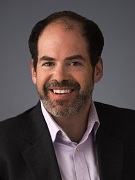 Adam Meirowitz is a Professor in the Political Science Department at Yale University. Prior to that he was the Kem C. Gardner Professor of Finance in the David Eccles School of Business at the University of Utah where he taught from 2015-2022. Before that he was the John Work Garrett Professor of Politics at Princeton University, where he taught between 2002 and 2015. Meirowitz’s research focuses on the application of game theory to the study of governance and collective decision-making. He has written on topics as diverse as arms sales and conflict, shareholder voting, political lobbying, the role of money and parties in politics, deliberation, delegation, learning in evolution and ecological systems, strategic voting in Congress and the existence of equilibria in large games. His paper, “Spatial Models of Delegation” (coauthored with Jonathan Bendor) received the 2005 Heinz Eulau Award for the best paper published in the American Political Science Review. Meirowitz was a recipient of the 2012 Social Choice and Welfare Prize, which is awarded every two years to the best scholar under the age of 40 working in the field of social choice theory or welfare economics. Meirowitz is currently engaged in theoretical work understanding the deep differences and commonalities between democratic voting institutions in political settings and democratic governance institutions in private organizations. One important feature that he is exploring is how connections between democratic choices and membership in the deliberative body impact incentives for the development of expertise and information sharing.
Adam Meirowitz is a Professor in the Political Science Department at Yale University. Prior to that he was the Kem C. Gardner Professor of Finance in the David Eccles School of Business at the University of Utah where he taught from 2015-2022. Before that he was the John Work Garrett Professor of Politics at Princeton University, where he taught between 2002 and 2015. Meirowitz’s research focuses on the application of game theory to the study of governance and collective decision-making. He has written on topics as diverse as arms sales and conflict, shareholder voting, political lobbying, the role of money and parties in politics, deliberation, delegation, learning in evolution and ecological systems, strategic voting in Congress and the existence of equilibria in large games. His paper, “Spatial Models of Delegation” (coauthored with Jonathan Bendor) received the 2005 Heinz Eulau Award for the best paper published in the American Political Science Review. Meirowitz was a recipient of the 2012 Social Choice and Welfare Prize, which is awarded every two years to the best scholar under the age of 40 working in the field of social choice theory or welfare economics. Meirowitz is currently engaged in theoretical work understanding the deep differences and commonalities between democratic voting institutions in political settings and democratic governance institutions in private organizations. One important feature that he is exploring is how connections between democratic choices and membership in the deliberative body impact incentives for the development of expertise and information sharing.
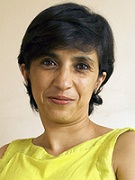 Rohini Pande is the Henry J. Heinz II Professor of Economics and Director of the Economic Growth Center, Yale University. She is a co-editor of American Economic Review: Insights. Pande’s research is largely focused on how formal and informal institutions shape power relationships and patterns of economic and political advantage in society, particularly in developing countries. She is interested the role of public policy in providing the poor and disadvantaged political and economic power, and how notions of economic justice and human rights can help justify and enable such change. Her most recent work focuses on testing innovative ways to make the state more accountable to its citizens, such as strengthening women’s economic and political opportunities, ensuring that environmental regulations reduce harmful emissions, and providing citizens effective means to voice their demand for state services.
Rohini Pande is the Henry J. Heinz II Professor of Economics and Director of the Economic Growth Center, Yale University. She is a co-editor of American Economic Review: Insights. Pande’s research is largely focused on how formal and informal institutions shape power relationships and patterns of economic and political advantage in society, particularly in developing countries. She is interested the role of public policy in providing the poor and disadvantaged political and economic power, and how notions of economic justice and human rights can help justify and enable such change. Her most recent work focuses on testing innovative ways to make the state more accountable to its citizens, such as strengthening women’s economic and political opportunities, ensuring that environmental regulations reduce harmful emissions, and providing citizens effective means to voice their demand for state services.
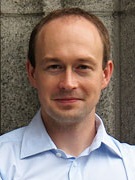 Milan Svolik is Professor of Political Science at Yale University. His research and teaching focus on comparative politics, political economy, and formal political theory. Svolik has authored and co-authored articles on the politics of authoritarian regimes, democratization, and democratic backsliding. In addition to continuing work on the politics of authoritarianism and democratization, Professor Svolik’s current research includes projects on democratic backsliding, support for democracy, and electoral manipulation. His latest book project examines why ordinary people support politicians who undermine democracy.
Milan Svolik is Professor of Political Science at Yale University. His research and teaching focus on comparative politics, political economy, and formal political theory. Svolik has authored and co-authored articles on the politics of authoritarian regimes, democratization, and democratic backsliding. In addition to continuing work on the politics of authoritarianism and democratization, Professor Svolik’s current research includes projects on democratic backsliding, support for democracy, and electoral manipulation. His latest book project examines why ordinary people support politicians who undermine democracy.
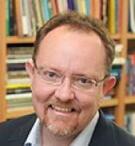 Steven Wilkinson is Nilekani Professor of India and South Asian Studies, professor of political science and international affairs, Henry R. Luce Director of the Whitney and Betty MacMillan Center for International and Area Studies, and vice provost for global strategy. He has worked on political conflict in India, and his first book on that topic, “Votes and Violence,” won the 2005 Woodrow Wilson Award for the best book on politics, government and international affairs. He is also interested in corruption in politics and co-edited the book “Patrons, Clients or Politics: Patterns of Political Accountability and Competition” with Herbert Kitschelt. His most recent book is “Army and Nation,” which came out in January 2015 and examines India’s success in managing the imbalanced colonial army it inherited in 1947. An elected member of the American Academy of Arts and Sciences, he is currently working with Saumitra Jha on a book on war and political change and with Sushant Singh on a new book on India’s changing defense structure. He earned his Ph.D. in political science from Massachusetts Institute of Technology, an A.M. in history from Duke University, and a B.A. in history from the University of Edinburgh.
Steven Wilkinson is Nilekani Professor of India and South Asian Studies, professor of political science and international affairs, Henry R. Luce Director of the Whitney and Betty MacMillan Center for International and Area Studies, and vice provost for global strategy. He has worked on political conflict in India, and his first book on that topic, “Votes and Violence,” won the 2005 Woodrow Wilson Award for the best book on politics, government and international affairs. He is also interested in corruption in politics and co-edited the book “Patrons, Clients or Politics: Patterns of Political Accountability and Competition” with Herbert Kitschelt. His most recent book is “Army and Nation,” which came out in January 2015 and examines India’s success in managing the imbalanced colonial army it inherited in 1947. An elected member of the American Academy of Arts and Sciences, he is currently working with Saumitra Jha on a book on war and political change and with Sushant Singh on a new book on India’s changing defense structure. He earned his Ph.D. in political science from Massachusetts Institute of Technology, an A.M. in history from Duke University, and a B.A. in history from the University of Edinburgh.